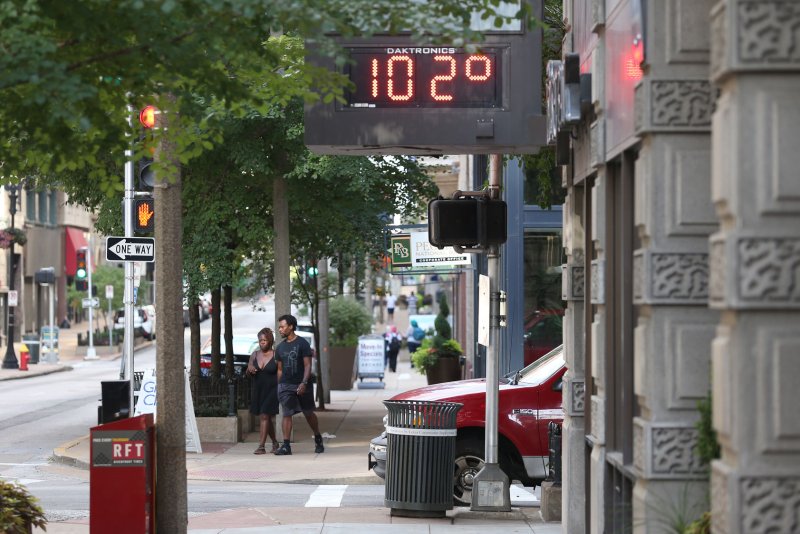New research suggests Earth is likely to warm an average of more than 2 degrees Celsius by the end of the century. Photo by Bill Greenblatt/UPI |
License Photo
July 31 (UPI) -- New research suggests the chance of limiting global warming to less than 2 degrees Celsius is highly unlikely. According to the latest analysis, there is a 90 percent chance Earth will warm by 2.0 to 4.9 degrees Celsius by the end of the century.
The Intergovernmental Panel on Climate Change has previously offered warming projections based on different scenarios related to the global effort to curb carbon emissions. The panel set a goal of curbing global warming to 2 degrees. Scientists warn warming above such a threshold is likely to trigger catastrophic sea level rise, as well as extreme droughts, heat waves and weather.
Speculating about the consequences of various policy scenarios may be a good way to communicate what's at stake in the fight to curb global warming, but it's not ideal for scientific modeling.
"The IPCC was clear that these scenarios were not forecasts," Adrian Raftery, a professor of statistics and sociology at the University of Washington, said in a news release. "The big problem with scenarios is that you don't know how likely they are, and whether they span the full range of possibilities or are just a few examples. Scientifically, this type of storytelling approach was not fully satisfying."
Raftery and his colleagues developed a model based not on scenarios, but on measurable inputs. The researchers analyzed the trajectory and impact on global warming of three factors: total world population, GDP per person and carbon intensity, or carbon emitted per dollar of economic activity.
To postulate forward, scientists analyzed the three inputs' effect on global warming over the last 50 years. Their analysis -- published this week in the journal Nature Climate Change -- suggests there is only a 5 percent chance Earth warms by less than 2 degrees.
Researchers found carbon intensity was the most important factor in predicting future warming. As technologies improve and governments curb emissions, carbon intensity has been dropping in many advanced economies over the past few decades. But at the current rate, carbon intensity is unlikely to fall fast enough to prevent significant warming.
"Overall, the goals expressed in the Paris Agreement are ambitious but realistic," Raftery said. "The bad news is they are unlikely to be enough to achieve the target of keeping warming at or below 1.5 degrees."















